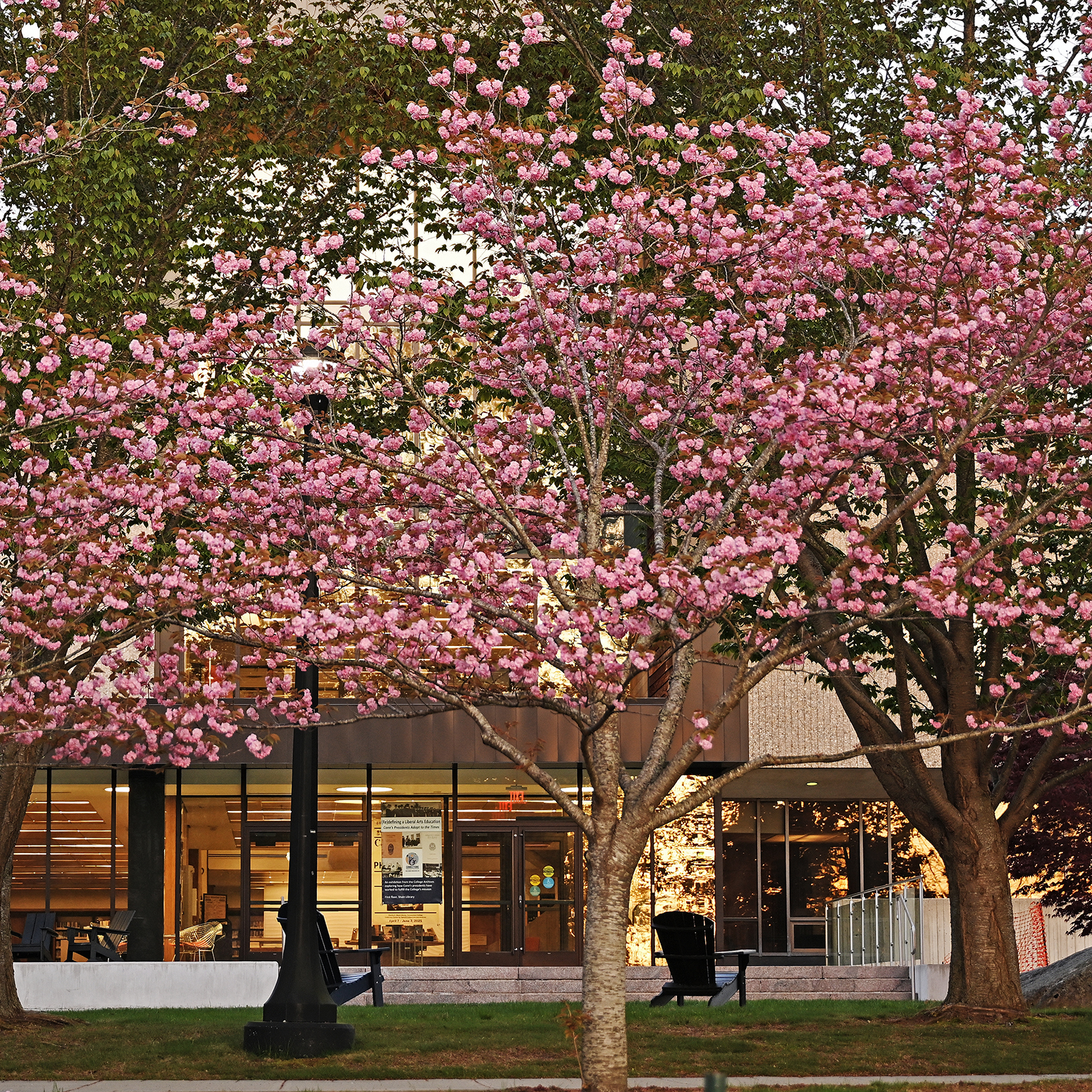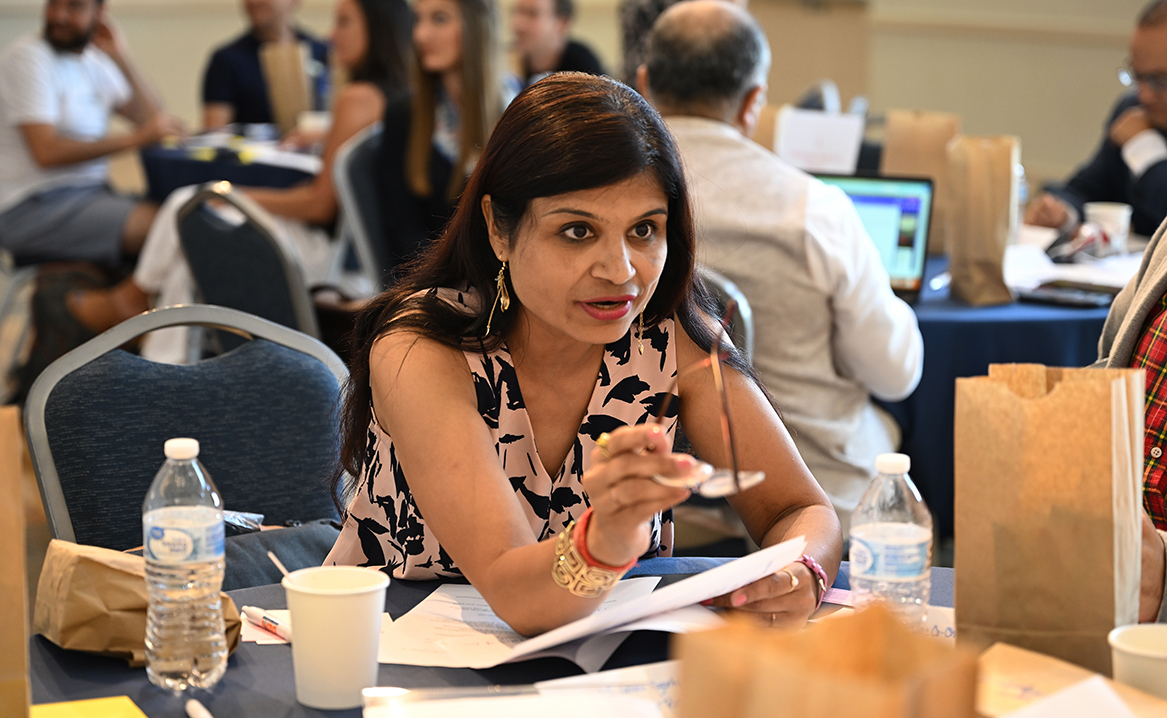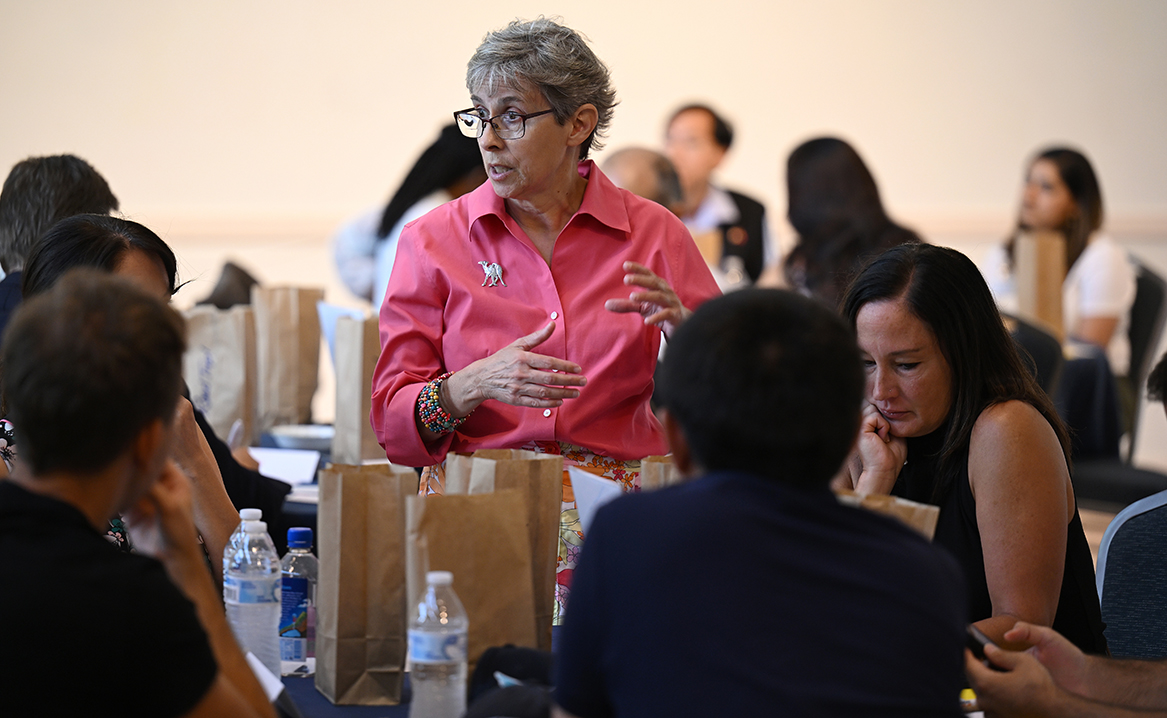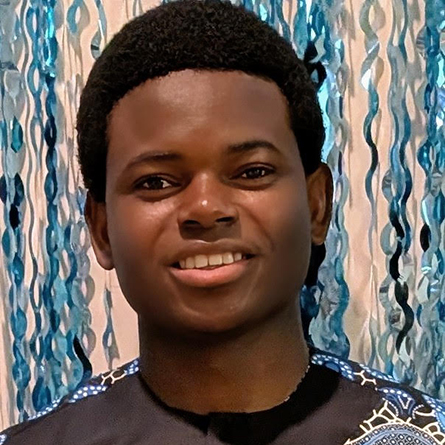
Conn hosts scholars from around the world as part of U.S. State Department program
Sixteen highly respected decision-makers and academics came to Connecticut College on July 13 to serve as elite U.S. policy-makers. Their roles included the White House chief of staff, the national security adviser, the Speaker of the House and the Senate Majority Leader. They presented their political judgments about a fictional Council to Anticipate and Respond to Biohazards (CARB).
This experience was part of an intensely competitive, five-week U.S. State Department program hosted by the Study of the United States Institutes (SUSI), Foreign Policy. Scholars hailed from Bangladesh, Cameroon, Chile, Egypt, Georgia, Hong Kong, Hungary, India, Kazakhstan, Malaysia, North Macedonia, Panama, Papua New Guinea, Peru, Poland and Turkey.

SUSI scholars spend four weeks studying at a university and one week traveling throughout the U.S. for campus visits. This year, the University of Delaware welcomed them and campus visits extended through the central Atlantic states and southern New England. At Connecticut College, MaryAnne Borrelli, the Susan Eckert Lynch ’62 Professor of Government, provided a workshop focused on U.S. domestic politics and international policy-making.
Borrelli said when Dan Bottomley, director of the 2023 SUSI for Foreign Policy, contacted her to see if she would be interested in hosting the scholars, she immediately accepted. “This is such a fantastic opportunity for the College and for myself,” she said.
Rather than lecture for the nearly three-hour event, though, Borrelli offered the 16 scholars an interactive experience. They were divided into four groups (the White House Office, National Security Council, House Republican Leadership, and Senate Democratic Leadership) and given a simulation revolving around the fictional CARB initiative.

Scholars were directed to act and behave as their assigned politician (personality and all!) and assess the policy, organizational and political consequences of this initiative for their office, department, party or branch; develop two strategies (one proactive and one reactive); and present a sound bite to serve as the hallmark of their group’s response to the initiative.
Each group chose a speaker, who had three minutes to present to the Washington Press Corps—the rest of the scholars, who asked questions. Everyone then voted on the sound bites, with the winner being the group whose sound bite received the most “press coverage,” or votes. It was a tie: The House Republican Leadership with “Cut the fat! No more CARBs!” and the National Security Council with “Prepare for Biowar!” Both winners clearly recognized the impact of political polarization on policy coverage, Borrelli said later.
Before the scholars headed to lunch at Harris Refectory and left campus for their event the next day at Yale University, Borrelli led a conversation about legislative-executive relations in decision- and policy-making.
SUSI scholar Bharti Chhibber, an assistant professor of political science at the University of Delhi in India who has spent nearly two decades studying and speaking about international relations and foreign strategic policy, said, “Coming to the College and meeting MaryAnne and everyone else was amazing. She made it so interesting for us. The kind of warmth that we got here was something exceptional. The simulation program was different and interesting because of the issue of biohazards, which I believe is very topical.”
An hour into the workshop, Connecticut College’s Interim President Leslie E. Wong stopped by to observe and greet the scholars. He welcomed them to the College, called the event “fabulous,” and shared that he had worked for two White House administrations in building relationships with China and the nations of southeast Asia.
“I’m so pleased that you’re here at Connecticut College,” he told the group.
